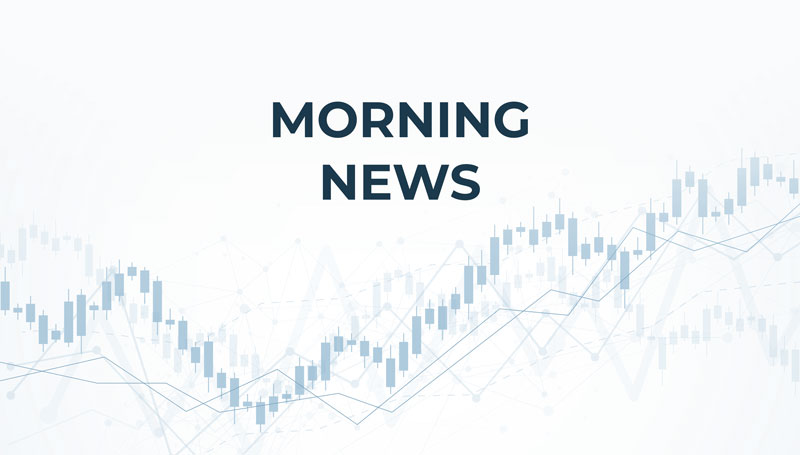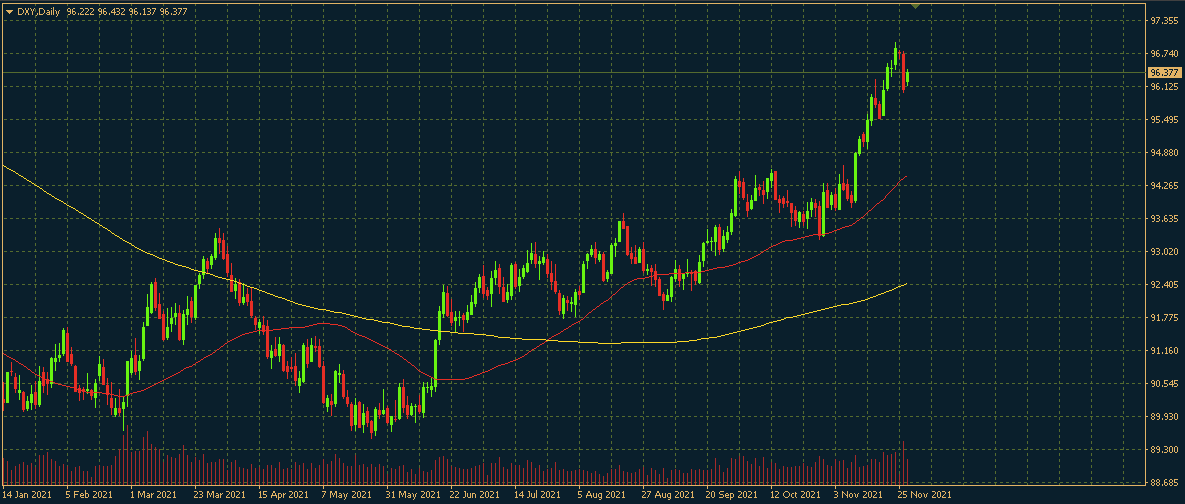
Gold 1791,885
|
EURUSD 1,131
|
DJIA 34647
|
OIL.WTI 68,195
|
DAX 15316,95
|
|---|
A new strain of coronavirus Omicron, which sent market participants fleeing risk en masse on Friday, collapsed the dollar index. But not for long. Already on Monday some of the losses were bought back. Does this mean that the Dollar Index (DXY) will now return to growth?
DXY

This time, running away from risk, investors have chosen gold and the Japanese yen as safe haven assets. The dollar has been abandoned. However, already today there is a redemption of the bottom on all fronts.
It is still difficult to say how durable the current recovery will be. The fundamental backdrop looks very turbulent due to the fact that little is yet known about the new Covid-19 Omicron.
Many countries have now restricted flights and are prepared to impose stricter containment measures if necessary. This, in turn, threatens the global economy with a slower recovery.
In such a situation, the Fed is likely to postpone plans to tighten monetary policy. It is these expectations that have sustained the month-and-a-half rally of the US currency. If the tone of the central bankers begins to soften, the dollar will come under pressure.
From a technical point of view, the dollar index reached a strong mirror resistance level at 96.50. If the fundamental background remains unfavourable now, it will be difficult to break this level and the DXY is likely to correct. The downside target would be the 95.50 area, and if it is broken, 94.50.
If, however, the incoming data on the new strain shows that it does not pose a new level of danger, all of Friday’s fall could be bought back and the rally will continue.
On the subject of the Omicron strain virus, it is worth remembering that the US labour market report is due this week. We remember that the Fed members relied on it in assessing their willingness to tighten monetary policy.
There is no telling what will happen with the coronavirus, but it may come back to Friday’s jobs report and play either plus or minus for the dollar.
What are the possible outcomes here? Bad news on the threat of a new strain and a weak report will lead to a collapse of the American currency. A strong report and relatively neutral news on Omicron, on the other hand, might support the DXY. And what if the news are mixed? It will depend on what investors keep in focus here.
14.30 Canada’s third quarter GDP
16.00 Conference Board US Consumer Confidence Index for November
Important Notes on This Publication:
The content of this publication is for general information purposes only. In this context, it is neither an individual investment recommendation or advice nor an offer to purchase or sell securities or other financial products. The content in question and all the information contained therein do not in any way replace individual investor- or investment-oriented advice. No reliable forecast or indication for the future is possible with respect to any presentation or information on the present or past performance of the relevant underlying assets. All information and data presented in this publication are based on reliable sources. However, Bernstein Bank does not guarantee that the information and data contained in this publication is up-to-date, correct and complete. Securities traded on the financial markets are subject to price fluctuations. A contract for difference (CFD) is also a financial instrument with leverage effect. Against this backdrop, CFD trading involves a high risk up to the point of total loss and may not be suitable for all investors. Therefore, make sure that you have fully understood all the correlating risks. If necessary, ask for independent advice.
